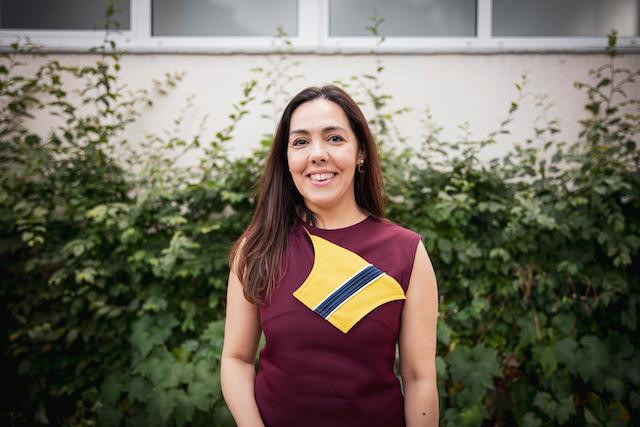The international Global Dignity movement centres around a few main principles, including the fact that every human has the right to lead a “dignified life” and fulfil his or her potential--no matter the gender, race, education, income and so on.
The Global Dignity movement has grown worldwide from reaching 30 youngsters in 2006 to 860,000 in 2018 in over 70 countries. It provides toolkits and teaching resources, all available through its website, to help participants delve deeper into the concept.
“Nowadays, people think dignity is difficult to define… and I think the idea of global dignity is to start with children, at primary and high schools, to help them with workshops, explore topics and try to fine-tune with them topics related
to dignity in their daily lives.”
Parisi gets support from the local Global Shapers volunteers, part of a broader international community born out of the World Economic Forum. She and the volunteers train teachers and other leaders on how to use a dedicated script and other tools for dignity workshops.
Among the most difficult topics that come up during such sessions are bullying and differences in cultures and financial literacy. But dignity can also be as basic as students realising that by doing homework, they are fulfilling their responsibilities.
“One of the things that came up is a need for children to have a place to talk about [these issues] without judgement, and to share their dignity stories in front of other children,” Parisi says. She cites a memorable example. “At the time, many immigrants were coming to Luxembourg, we managed to have a refugee with us… the students asked to see where they come from, where they are, so that [they] could support them the best way [they] can.”
Time well spent
Although Parisi says the day is celebrated once a year, she hopes the concept will take off in every school in Luxembourg. And she believes it wouldn’t take a huge commitment. “Two hours is okay, even if it’s on a Saturday.”
Similar dignity workshops can also be held at the workplace. Parisi says some companies are including global dignity, for example, on a monthly basis, with workshops on respect, justice and so on. In her case, when she wants to volunteer outside of working hours, she takes a day off, although she would like to see even more companies supporting their employees “to give back through [their] time”.
But the concept of dignity goes beyond a particular environment. “I don’t want global dignity to be just one day,” Parisi says. “I would like it to be a process… it’s about doing the right thing, having the right values, and really nurturing those values and putting it into action.”
How to begin? “Start with yourself. Ask: ‘Are you treating yourself with dignity?’ And from there, you can help others.”
This article first appeared in the September/October print edition of Delano.
